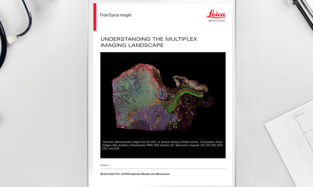MESO-BRAIN initiative receives €3.3 million in funding
Posted: 9 June 2016 | Victoria White, Digital Content Producer | No comments yet
The Meso-Brain project could revolutionise the understanding of disease and lead to new treatments for those with dementia or brain injuries…

The Meso-Brain consortium has received a prestigious award of €3.3 million in funding from the European Commission.
The Meso-Brain project aims to develop three-dimensional human neural networks with specific biological architecture, and the inherent ability to interrogate the network’s brain-like activity both electrophysiologically and optically. It is expected that the Meso-Brain will facilitate a better understanding of human disease progression, neuronal growth and enable the development of large-scale human cell-based assays to test the modulatory effects of pharmacological and toxicological compounds on neural network activity. The use of more physiologically relevant human models will increase drug screening efficiency and reduce the need for animal testing.
Meso-Brain project to launch in September
The Meso-Brain project’s cornerstone will use human induced pluripotent stem cells (iPSCs) that have been differentiated into neurons upon a defined and reproducible 3D scaffold to support the development of human neural networks that emulate brain activity. The structure will be based on a brain cortical module and will be unique in that it will be designed and produced using nanoscale 3D-laser-printed structures incorporating nano-electrodes to enable downstream electrophysiological analysis of neural network function. Optical analysis will be conducted using cutting-edge light sheet-based, fast volumetric imaging technology to enable cellular resolution throughout the 3D network. The Meso-Brain project will allow for a comprehensive and detailed investigation of neural network development in health and disease.
Commenting on Meso-Brain, Prof Edik Rafailov, of Aston University and Head of the project, said: “What we’re proposing to achieve with this project has, until recently, been the stuff of science fiction. Being able to extract and replicate neural networks from the brain through 3D nanoprinting promises to change this. The Meso-Brain project has the potential to revolutionise the way we are able to understand the onset and development of disease and discover treatments for those with dementia or brain injuries. We cannot wait to get started!”
The Meso-Brain project will launch in September 2016 and research will be conducted over three years.




